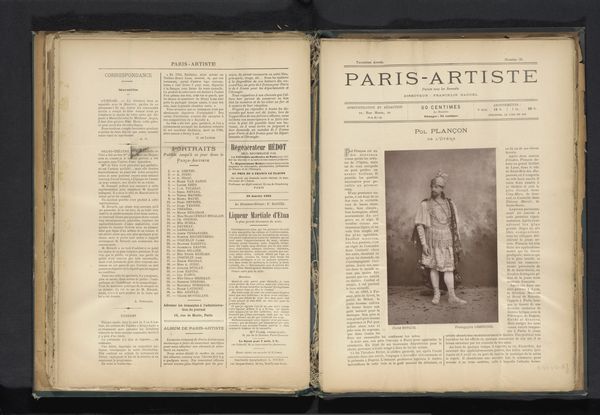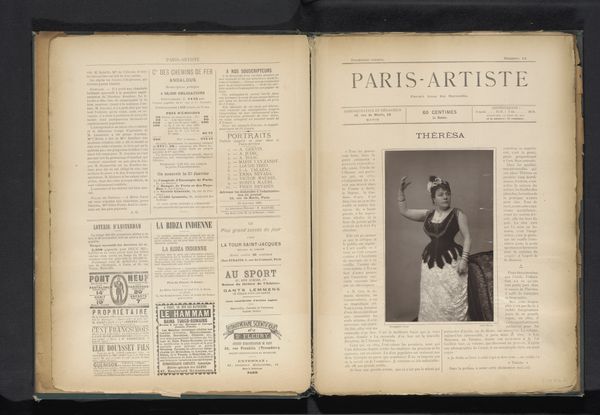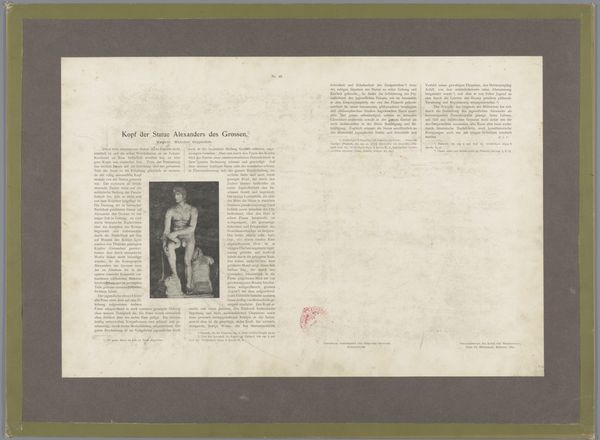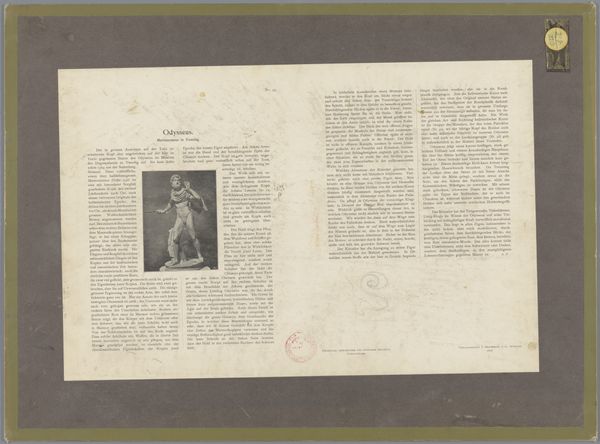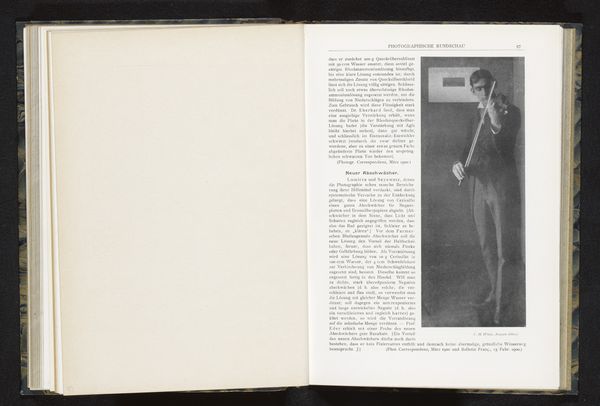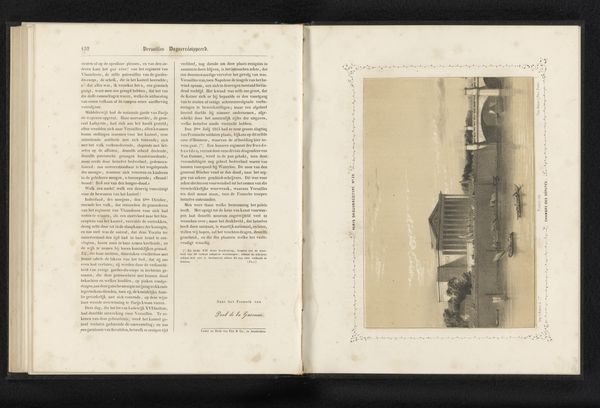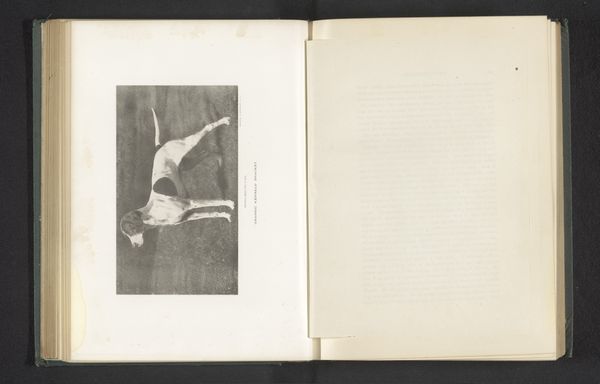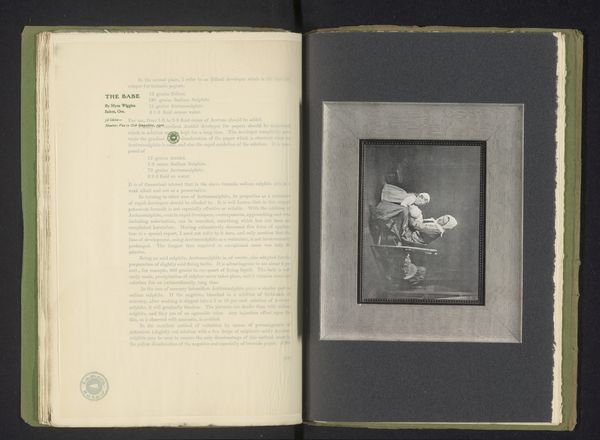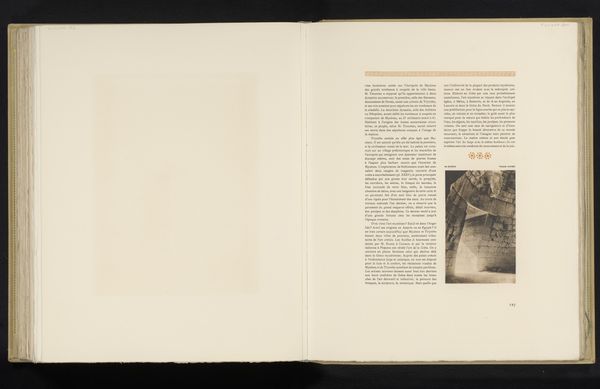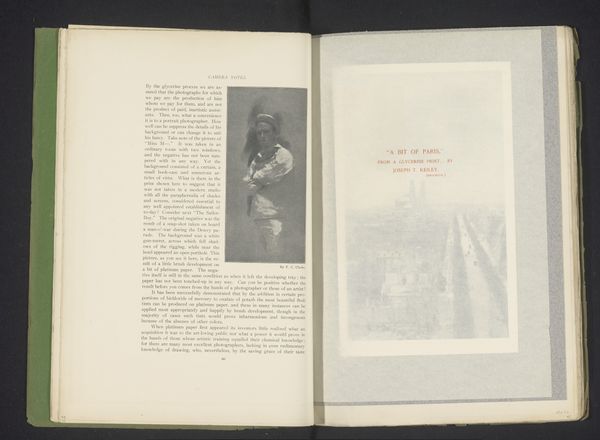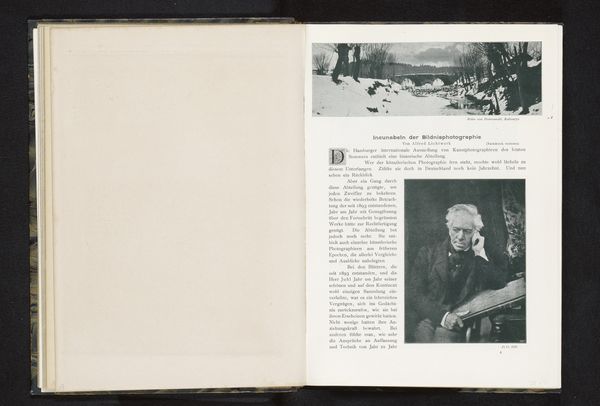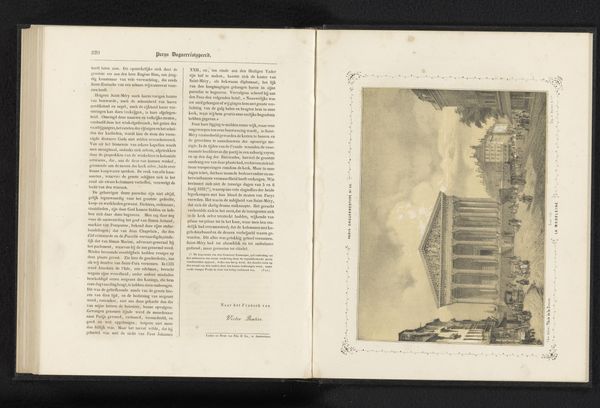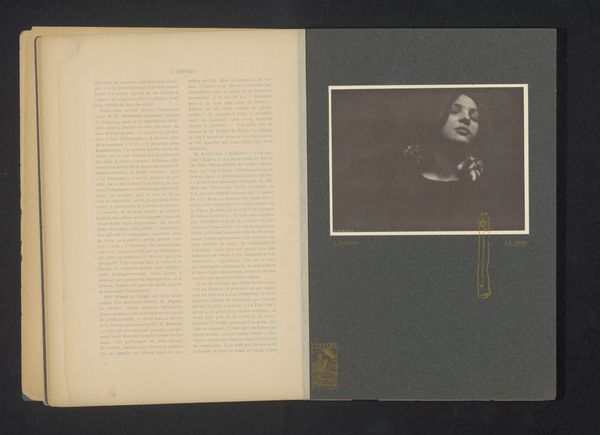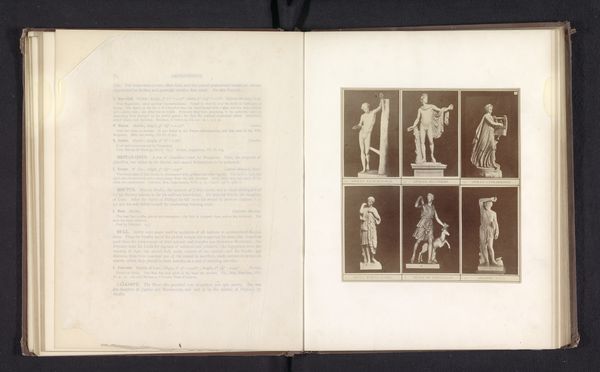
print, daguerreotype, paper, photography
#
portrait
#
still-life-photography
# print
#
daguerreotype
#
paper
#
photography
Dimensions: height 189 mm, width 121 mm
Copyright: Rijks Museum: Open Domain
Editor: Here we have a fascinating page from the "Paris-Artiste" featuring a portrait of Louis Mérante. It looks like a print of a daguerreotype photograph pasted onto the page, dating from around 1875 to 1885 by Wilhelm Benque. It's incredible how it combines portraiture with journalistic print. How do you interpret the integration of these mediums? Curator: Considering it materially, we need to understand how photography at this period became increasingly intertwined with the means of mass communication. The layering of a photographic portrait, most likely a highly specialized practice by Benque, onto a commercially printed page immediately speaks to the democratization of image-making, and how artistic practices get woven into systems of mass consumption. Is it "high" art? Is it purely commercial? The very format challenges those boundaries. Editor: That’s fascinating! It seems that photography, once a separate artistic endeavor, was being manufactured on a larger scale with printmaking. Do you think the presence of Mérante on these pages affected how audiences valued photography? Curator: I wonder. Consider how print production changed. The photograph isn't presented in isolation; instead, it is juxtaposed within a broader journalistic context. Does the labor and craftsmanship embedded in creating Mérante's likeness for mass circulation alter the value we ascribe to this work? How might the readers of “Paris-Artiste” receive photography’s relationship with printed journalistic content in Parisian culture at the time? Editor: It makes me wonder who decided what photos ended up in these publications! It seems a perfect example of labor and social processes embedded within image making. Thank you! Curator: Likewise. I think it reveals the interconnectedness of art, industry, and the shaping of cultural tastes.
Comments
No comments
Be the first to comment and join the conversation on the ultimate creative platform.
